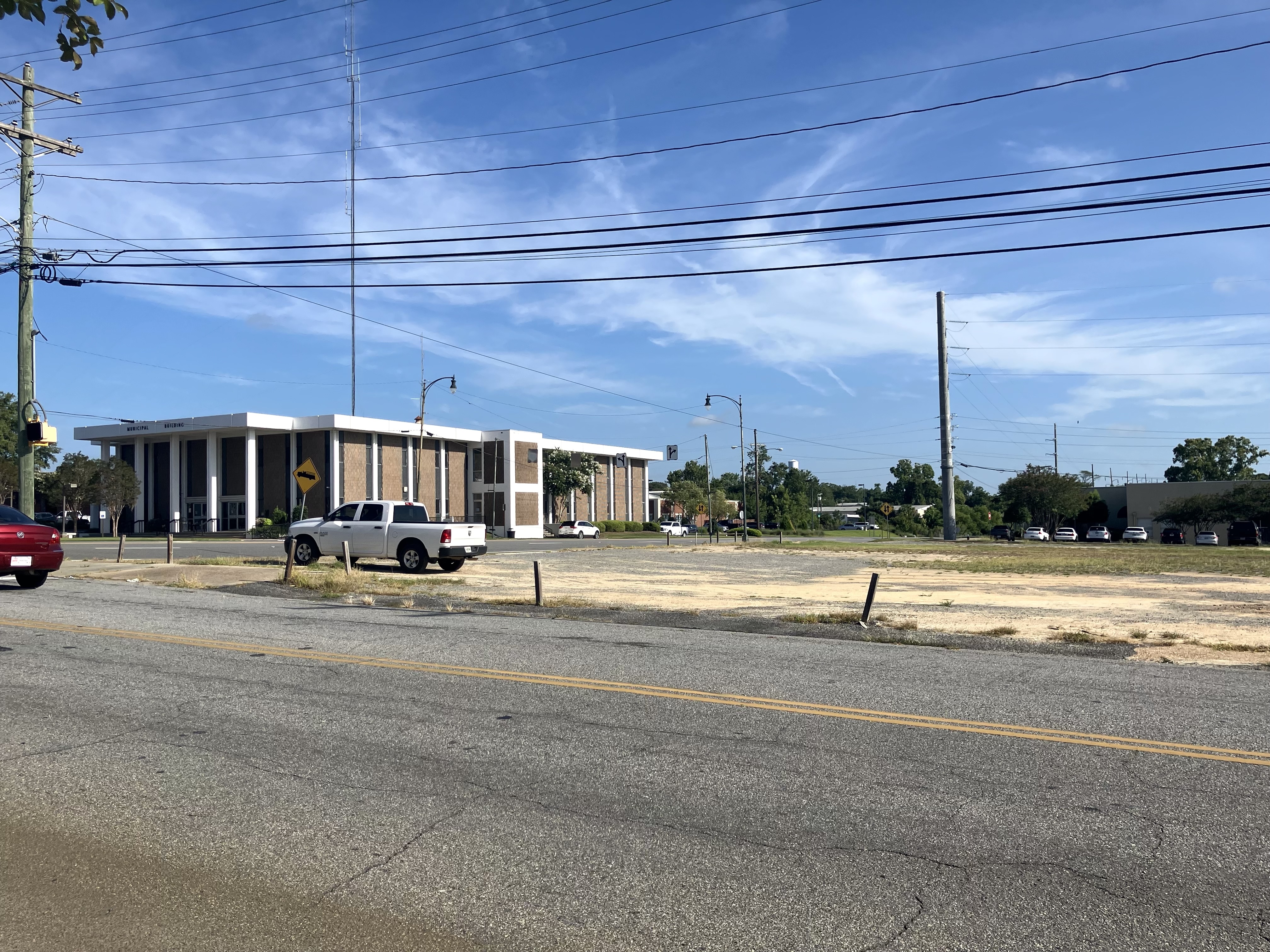Resident appeals to commissioners about
property assessments
Published 5:23 pm Monday, July 21, 2025
MOULTRIE – Property taxes in Colquitt County continue to be a hot topic among residents and the Colquitt County Commission. Many residents saw a significant increase in their property assessments and subsequent taxes last year, and that seems to fuel the ongoing discussions.
This year’s assessments have been sent out. The last date to file a written appeal for this year’s property assessment is Aug. 14.
At last Tuesday’s county commission meeting, Wiley Lane of 125 Fox Trot Drive addressed the commissioners about his and his neighbors’ frustrations at their property assessments and the denial of their appeals by the Board of Equalization.
Trending
County Commissioner Paul Nagy said, “I invited him to come because I realize we can’t address with the tax assessor any particular person’s taxes, but he’s brought up some interesting things we need to know about.”
Lane said he was there on behalf of himself and his neighbors because their property taxes had risen exponentially over the past four years.
“I live in Westwood Subdivision. Last year, several of us from the neighborhood went and one of us filed an appeal. But we went and made an appeal as a group,” he said.
He said they presented compelling evidence that their neighborhood was being treated differently from other subdivisions in the county.
“We shared, with great accuracy, that our assessment was more and we were paying more property taxes than other comparable neighborhoods,” he said.
He added that some of those neighborhoods were “more desirable” and affluent, yet some of the properties in those neighborhoods were assessed much lower than in his neighborhood.
Trending
“For example, some were assessed as low as $80 a square foot,” Lane said. “I’m talking about really nice neighborhoods. While mine and others in our neighborhood was assessed at over $150 a square foot.”
He said he could not understand why and how they lost their appeal at the hearing with the Board of Equalization.
“We were told that we should show that the tax assessor used a different formula on evaluating our properties than he did on other properties,” Lane said. “I don’t even know what that means.”
He said he and his neighbors were also told that their assessments were based on sales in their neighborhood alone.
“I was very disturbed and disappointed to know that we were being treated unfairly, and really there was nothing that could be done,” he said. “Especially after the hours and hours of research and comparing and compiling information on so many properties in this county to present a true, simple and easily understandable comparison.”
He said, when he received his estimated property tax this year, not only did it go up but his assessment increased by $161,277.
“You boys, hear that?” He asked and they responded in the affirmative.
Then, Lane asked, if anybody else in the room had their taxes go up that much. He added that his taxes had gone up by leaps and bounds for the last four years. He also said that the assessment on his property had gone up 178% in the last four years.
“My federal income tax hasn’t gone up like that,” he said. “My state income tax hasn’t gone up like that.
Next, he referenced part of an article in a previous addition of The Moultrie Observer concerning a commission meeting, in July 2024, where Chief Tax Appraiser Jim Mac Booth was present.
Commissioner Mike Boyd had questioned Booth on whether he was appraising 1/3 of the properties in the county per year. At the time, under the state’s “best practices,” every property in the county should be appraised every three years.
In November 2024, voters approved a constitutional amendment that stipulated every property in the state must be appraised at least every three years.
Booth responded to Boyd that it was probably closer to 10% because of the lack of manpower. Lane said, when he read the interchange between Boyd and Booth, he assumed that the earliest that he would see any type of adjustment to his assessment on his property taxes would be at least another 10 years.
“Surely, not in the next five or seven years,” he added. “I would submit to you, today, that the tax assessor has increased his staff by over five times or I and my neighborhood is getting his undivided attention every year. I tend to think it’s the latter.”
He then asked the commissioners if Booth had increased his staff and County Administrator Chas Cannon indicated that he had not.
He said, if Booth was spending so much time on his neighborhood every single year, then surely he must be neglecting other neighborhoods.
Lane also told the commissioners that he would like to express his feelings on property taxes.
“I think they are the most immoral, unjust, unfair taxes that are placed upon our people. I don’t understand why property taxes are given to bear most of the load of our local government,” he said. “As property owners, we are punished for having the initiative and the desire to own our own property.”
He added that property owners didn’t actually own their own property, since they had to pay the county every year so they could remain on their property. He said residents buy boats, cars, tractors, or a bar of candy and when they take it home, it belongs to them.
“The tax-man doesn’t come around every year to say ‘pay me or I’ll take your boat, I’ll take your car, I’ll take your tractor,’” Lane said.
He said, if a resident didn’t pay their property tax, the county would take their home and land.
“They’ll sell it. And you, my friend, will be looking for somewhere else to live,” he added.
Lane also said that he disagreed wholeheartedly with the idea that property taxes should be based solely on home sales in a resident’s neighborhood.
“Many homes are more desirable because of how they’re constructed on the inside and how they are finished on the inside,” he said.
He said a person cannot tell by looking at the outside what the inside of a house looks like.
“There’s no way that you can put a price on a house or a property by looking at it from the outside,” Lane said. “No person in their right mind is gonna make an offer to buy a house if they don’t go inside the house and take a real good look around.”
He added that his point was how could a person put a price on any home or property without having all the facts.
“So, let me say this, I’m not advocating that the tax-man ought to be able to come inside my house, but I am saying that the formula that’s being used to place assessment on our properties is certainly not a good formula,” he said.
Lane gave some examples from the research he had done on assessment values for homes in his neighborhood, including a home that was sold this year. He said, it had a swimming pool and a decorative fence and sold for $168 per square foot. He said, however, his house, which does not have a swimming pool or a decorative fence, is assessed, right now, at $206 per square foot.
He also told the commissioners that he had pulled reports from home.com and realtor.com and gotten the resale estimates of his home, which were approximately, $187.8K and $220.8K lower, respectively, than his current assessment.
Lane said he could give them dozens of examples and that’s what he and his neighbors did when they went before the Board of Equalization. He said they went before Franklin Veasey at the hearing and two other members of the board, who didn’t say anything.
“Franklin Veasy told us, ‘You need to prove to us that the tax assessor used a different formula when he figured your taxes then when he did…’ he dismissed all of our… we had… we had plenty of evidence. We had dozens of examples like that I just gave you…. From subdivisions all over this county,” he said and added that he was at his wits’ end.
Nagy said, “The reason I asked him to come here tonight is the inconsistencies are alarming. Period.”
Commissioner Johnny Hardin said, “The appraisals are all over the place.”
Chairman Denver Braswell said, “Even though your assessed value has way more than doubled, our end of it is the millage rate and we’re doing our dead level best to keep lowering the millage rate, even though your assessed value goes up.”
Cannon told him that if his house was under the homestead exemption, the value would be capped at the rate of inflation from last year.
“So, that’s to your favor,” he said. “Take into consideration, the commissioners roll the mileage rate back to account for the increase in value. That should put downward pressure on your actual tax bill that you get from the tax commissioner.”
Cannon said another thing that would help him out was if voters approved FLOST.
“If FLOST passes, then we are estimating close to a 50% reduction in property taxes across the board,” he said. “What you’re doing is taking a sales tax that people pay and you’re swapping it out with property tax. It’s a one-for-one swap.”
He said, so instead of the parcel owners toting the load for the whole county, it’s being disseminated out among people who are passing through that don’t live here.
“They’re helping to pay that bill to operate the county. That’s gonna put downward pressure even more on your tax bill for your home,” Cannon said. “We recognize that property tax is an issue at the state, federal, local.”
He said the county doesn’t have any control over the assessment values because they were separate.
“From the commissioners standpoint, we’re trying to put downward pressure on your tax bill, your property tax bill,” he said. “We agree that property taxes are unfair completely.”
He said commissioners have the same sentiment that Lane does, but there were ways to go about doing it and they had to go by what the law said.
“The one thing that just eats away at me is that it’s not equitable,” Lane said. “There’s too much inconsistency there.”
According to Title 48, Chapter 5, Article 5, titled “Uniform Property Tax Administration and Equalization,” of the Official Code of Georgia, under the “County Boards of Tax Assessors” section, “The board shall see that all taxable property within the county is assessed and returned at its fair market value and that fair market values as between the individual taxpayers are fairly and justly equalized so that each taxpayer shall pay as nearly as possible only such taxpayer’s proportionate share of taxes.”
Braswell told Lane that he had gone through the appeals process with his properties and had not had much more luck on the assessed value than he did, so he understood.
“Even though, I haven’t had much luck on the assessed value, I work as hard as I can on the millage rate every day,” he said.
Lane said he appreciated the commissioners, but he thought they needed to be aware of what was going on.
“I don’t mind paying what’s right, but when you see so much inconsistency,” he said.






